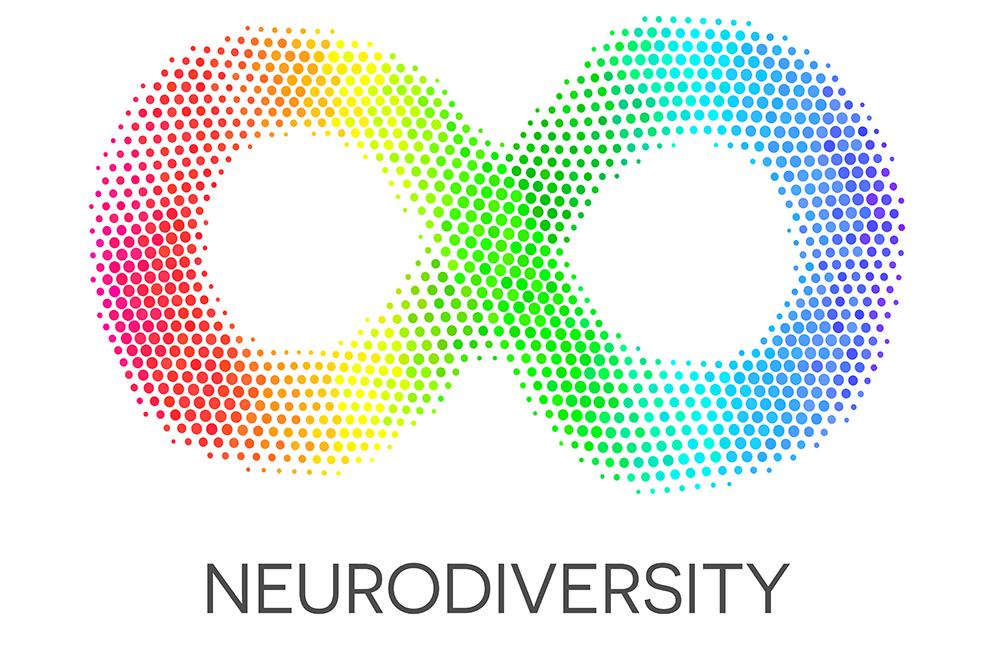Much has been made of the business case for bringing diversity to an organization. Certainly, having people from varied backgrounds with different ideas and perspectives can give a business an edge over competitors. Plus, morale flourishes when people feel included and appreciated.
Often, though, diversity efforts are focused on race, ethnicity, and gender, but Abigail Erickson-Torres, CEO of Bryan’s House in Dallas, Texas, wants to put neurodiversity on more organizations’ radar.
For more than 30 years, Bryan’s House has served children with medical or developmental needs. It’s a nonprofit serving children and their families by offering case management, crisis intervention, mental health services, and other necessities. But Erickson-Torres is looking beyond those here-and-now basics. She’s also looking to the children’s future.
“If the children are aging out at the age of 21, what are they going to do?” Erickson-Torres asks. “Are they employable? How can we put them on this pathway to inclusion?” She knows that getting the young people of Bryan’s House ready for employment is only half the battle.
The other part of the effort is getting employers to understand that an organization’s diversity, equity, and inclusion efforts need to take neurodiversity into account – not because it’s nice to give someone a job, but because businesses benefit from the contributions neurodiverse people bring.
“And so, I guess I’ve been speaking a bit here and there about inclusion, what that looks like for employers, and also how people can make space in their companies for people with disabilities because, actually, the whole community benefits if they do that,” Erickson-Torres says.
Capitalizing on Joy
Plus, joy is a key part of the picture. “It’s just thinking a little bit outside the box, and you find it’s actually quite fun,” Erickson-Torres says.
The term neurodiversity often refers to people on the autism spectrum but also includes other neurological conditions such as attention deficit disorder and more. Sometimes, workplace accommodations are needed for neurodiverse employees, but often those employees bring strengths neurotypical employees lack.
When employers don’t let neurological differences get in the way, they see that their neurodiverse employees “bring so much more to the company because they’re so joyful in their work,” Erickson-Torres says.
Examining, Recruiting, and Hiring
Many big companies are making an effort to overcome barriers neurodiverse people face in the job market, Erickson-Torres says, and other employers can benefit from the lessons those companies have learned. She cites Microsoft and consulting firm EY as employers focused on how to benefit from the perspectives of their neurodiverse employees.
Those and other companies that have reimagined their recruitment and hiring policies with neurodiversity in mind, and they can be inspiring examples to other employers, Erickson-Torres says.
She urges other employers to look at their own hiring practices to make sure they aren’t missing opportunities. Often employers learn that someone with a neuro difference may have a needed skill set but for some reason can’t get a foot in the door. For example, some people with neuro differences have challenges getting to the interview, or they may be uncomfortable being in a public place.
“So, looking at those hiring best practices to see if there’s a way to streamline that through an application process or anything like that, that’s always a good start,” Erickson-Torres says. Also, technology can break down barriers. For example, text-to-speech software as well as closed captioning and other forms of technology can be helpful, and sometimes remote work can be the answer.
It’s also important for employers to have talent acquisition professionals who are emotionally intelligent and understand what it is to hire neurodiverse individuals, Erickson-Torres says. An internet search can turn up best practices and other helpful information about recruiting and hiring neurodiverse employees.
Overcoming Impediments
Both employers and neurodiverse jobseekers face obstacles, but “it’s really up to the company to be open, to consider an individual based on their skill set and, obviously, their whole history of being employed,” Erickson-Torres says.
The growing popularity of remote work helps. Being able to work at home eliminates any transportation issues and the challenges some people have with being in crowds.
Diversity training programs also can play a role in overcoming impediments. “I would say that the most effective employer training programs should really be customized to the company because everyone’s different and everybody has different needs,” Erickson-Torres says.
It’s especially important to create the right culture, she says. “I think right now the greatest impediment is that people are not talking more about this and that there’s not enough best practices out there for people to lean into.”
Ensuring Success
In addition to recruiting and training with inclusion in mind, Erickson-Torres says careful listening is vital to ensuring success in the workplace for neurodiverse individuals.
“I think listening is really important because some conversations for folks that are neurodiverse are really difficult,” Erickson-Torres says. Also, having conversations and being authentic with a person who is neurodiverse is important. She urges employers to talk about their neurodiverse employees’ strengths and weaknesses and to play to their strengths.
“Make sure that you are able to get the work done, but also provide those moments of opportunity where you make accommodations,” she says. “I think that is the most important thing.”
And the payoff will be worth it, she says.
“My message is how can you not bring people that are neurodiverse into your employment?” Erickson-Torres says, adding that hiring for neurodiversity brings in so much talent even if an individual may not be able to engage socially as much as other employees.
“Try it,” Erickson-Torres urges. “Get some good information behind you and then just open the gates and you’ll be so happy.”
Tammy Binford is a Contributing Editor at HR Daily Advisor.
The post Finding Joy in Bringing Neurodiversity to the Workplace appeared first on HR Daily Advisor.
